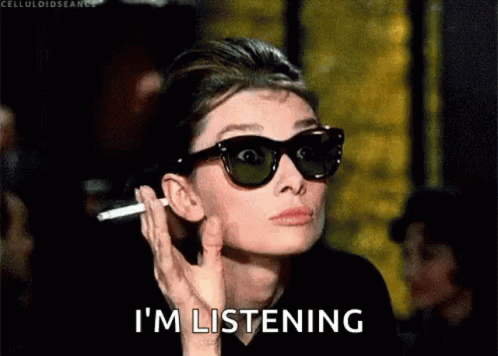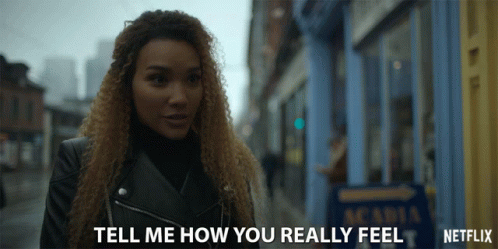7 Tips For When You’re Struggling To Find A Friend
Photo by Kinga Cichewicz on Unsplash
It’s no secret that we focus much of our time and energy on finding the right significant other — we search and dream and date around, hoping that one day we’ll finally bump into the person we’ve been looking for all along. We invest this kind of energy because we assume that our romantic relationship is the only one of our relationships we’ll actually have to work for in order to find.
But for some of us, that’s not the case; our significant other, it turns out, wasn’t nearly as hard to find as a good friend. While we’ve had success in cultivating a healthy romantic relationship with someone, we’ve struggled and fought to even find one real friend, one person we felt was a kindred spirit, with whom we could trust our innermost feelings and unfiltered thoughts — the Diana to our Anne.
As much as it can hurt to feel perpetually single, it can hurt even more to feel perpetually friendless, as if we simply weren’t built for such a basic yet meaningful relationship.
This leads us to a question: what are we doing that’s potentially holding us back from finally finding our Diana? And what can we do to bring us closer to finding our kindred spirit?
01 | Don’t expect them to magically appear.
We yearn for a lasting friend connection; we want someone we can call anytime, anywhere, to find support and helpful words; we wish we had someone who’d agree to a last minute road trip just because — but then we also leave it all up to fate to figure it out for us.
The reality is that finding a friend typically won’t just happen — especially as an adult. Sometimes, it’s on us to take initiative and search for our friend rather than hoping they’ll come knocking on our door; this can look like being the first one to reach out to plan a coffee date (even if it’s not in our nature to be the initiator), joining small groups at church, or even starting our own book club.
We have to invite friendship into our lives if we hope to cultivate it, because the truth is that most other people are simply waiting for friendship to come knocking, too.
02 | Get rid of the preconceived image of what they ‘should’ look like.
We want a friend that’s reliable, who’s always willing to be a listening ear, who makes us laugh hard and think deeply. But if we’re honest, we also have an image of what our friend ‘should’ look like — a little list of stipulations, requiring that they can’t be too odd, or have any funny habits that get on our nerves, or come from too different a background, or be a good bit older than us.
Even the loneliest of us still have a preconceived idea of how our friend is supposed to look (or how they’re supposed to make us look). But C. S. Lewis explored in The Four Loves the affection we can have for those we wouldn’t have expected: “In my experience it is Affection that creates this taste, teaching us first to notice, then to endure, then to smile at, then to enjoy, and finally to appreciate, the people who ‘happen to be there’... They are themselves, odder than you could have believed and worth far more than we guessed.”
When we get rid of the preconceived image of how our friend ought to look, we might find that we, unbeknownst to us, have had a kindred spirit right in front of us all along.
03 | Be more consistent.
Much like in the dating world, it can be exhausting to feel as though we’ve put ourselves out there often enough and haven’t reaped any benefits; we’ve gone to groups and initiated coffee dates here and there, and yet, we still find ourselves without weekend plans, without anyone texting to check up on us.
It’s tempting to throw in the towel and disappear, burnt out from so much effort and so little reward. But consistency is what will eventually create a friendship. Continuing to show up to groups, regularly texting a potential friend to see how their week is, and frequently being the one to make plans will bring us closer to finding our kindred spirit.
Most people long for a midweek ‘how are you?’ text, or to have someone think up Friday night plans, or to have someone faithfully show up to their group — be the person who does, and maybe we’ll find a friend out of it.
04 | Don’t take things personally.
So we put ourselves out there, hung out with someone we thought of as a potential kindred spirit, but it seems like while they enjoy our company, they aren’t looking for the same type of friendship as we are — and we start to wonder, why doesn’t she want to be my friend? and take her different social needs as a personal rejection.
When we’re searching for our kindred spirit, it’s as if we’re casting the role of ‘best friend’ in our movie. But what we need to understand is that we need to find someone who’s also casting for that role in their own movie, not someone who already has that role filled — and we can’t take it personally if someone isn’t searching for the same type of friendship we are.
05 | Stop focusing on yourself.
We’re in the middle of a conversation with someone, just hoping we’re sounding interesting enough that they’ll want to know more, that we haven’t said anything too stupid yet, or that they aren’t wishing we’d let them go talk to someone else. We focus so closely on ourselves, holding up a mirror to our every word, action, and expression, desiring to make the ‘right’ impression on them.
What we fail to recognize when we put ourselves under a microscope is that most people hardly pay attention to us the way we do — they’re paying attention to themselves. They won’t take note of our words and behaviors the way we assume they will, because they’re most likely watching and assessing their own.
This realization offers us the freedom to relax, take away the unneeded pressure we’ve placed on ourselves, step out from in front of the mirror that tells us all we’re doing wrong, and simply engage with the person in front of us.
06 | Be genuinely curious.
If we consider some of the people we’ve liked right off the bat, many of them will have something in common: they were genuinely interested in and engaged with us. They asked us questions and listened to our answer, letting what we told them inform their next question or observation.
People love to talk about themselves and be the object of someone’s curiosity, even those who’d typically refrain from volunteering information about themselves. They enjoy feeling as though their life, which being theirs, is boring to them, is exciting or intriguing to someone else — be that someone else.
07 | Don’t underestimate vulnerability.
It can be terrifying to let someone in, even just to the foyer of our mind (nevermind the basement). It’s nerve wracking to be vulnerable and honest with someone, especially when we aren’t sure if our relationship is at that level — we’d all hate to be the person that spills their guts to someone we barely knew, making them uncomfortable and unsure of what to do with the information.
But authenticity and vulnerability are also key ingredients to any friendship, as flour is to bread — and the truth is that we’re all searching for someone we can be vulnerable with, because most people are on the lonely side.
We can’t underestimate the power of vulnerability in our feelings and thoughts when forging a true friendship. When we choose to let someone in on our struggles and burdens, they’ll match the investment we just made by letting us in on theirs — and that is where friendships are born.









